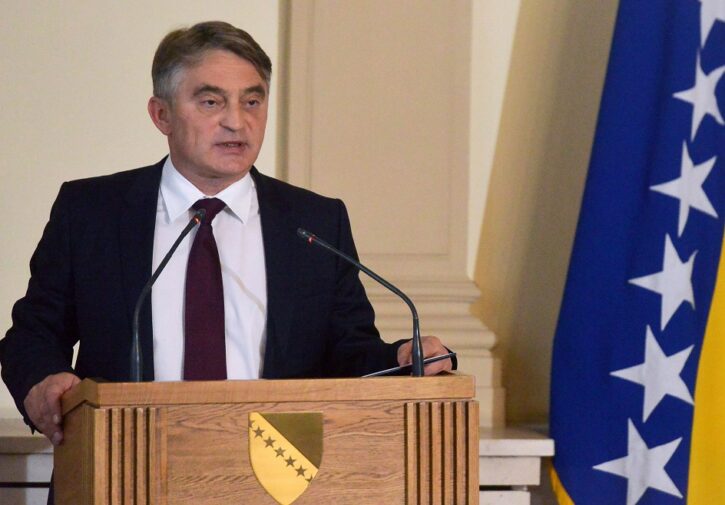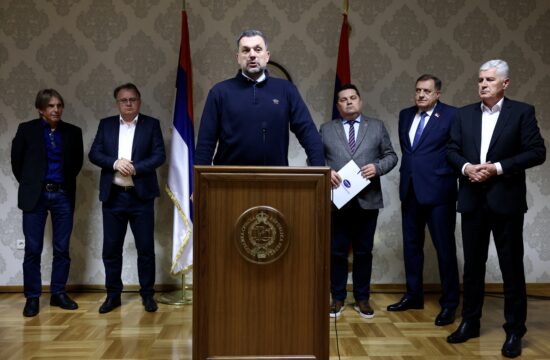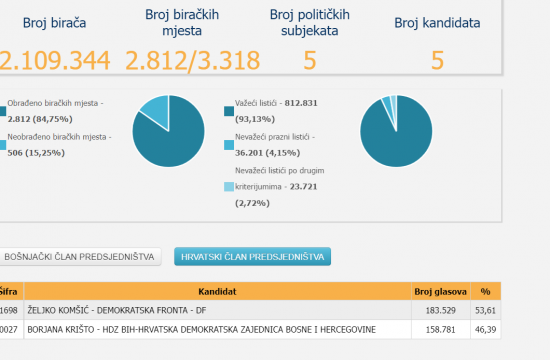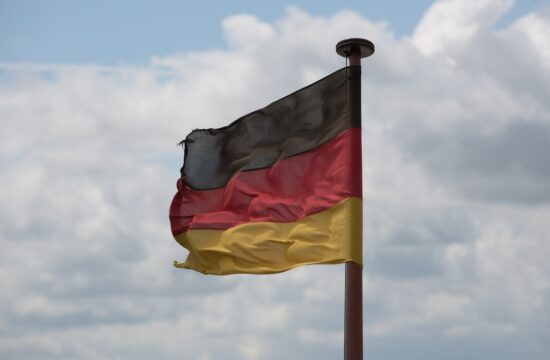
Bosnia's Croat Presidency member, Zeljko Komsic, welcomed a statement by Polish Ambassador to the UN, Joanna Wronecka, who said the decision by Bosnia's Serb-dominated part to establish an auxiliary police unit is an introduction into the establishment of entity armed forces.
“I completely agree with Ambassador Joanna Wronecka's statement that the establishment of the auxiliary police unit in the RS is an introduction into the establishment of entity armed forces, and I'm glad that it's finally visible outside of Bosnia,” Komsic said, adding he is astonished that some political parties in Sarajevo are pretending not to see this as well.
In March, the government of Republika Srpska (RS), one of the two semi-autonomous entities within the country, adopted a draft of amendments to the Law on Police which introduce an additional police unit in this entity.
The unit would be composed of 1,000 youths who would be summoned only when necessary, the Interior Minister Zoran Tegeltija said earlier, adding that they would have the same competencies as active police officers engaged in police duties.
This prompted fierce reactions in Bosnia's other semi-autonomous entity, the Bosniak-Croat shared Federation of Bosnia and Herzegovina (FBiH), whose politicians, in turn, announced requests for the formation of FBiH's auxiliary unit. As the FBiH is further divided into ten cantons, this would possibly mean the creation of ten auxiliary sub-units, each belonging to one of the cantons.
After the 1992-95 war, Bosnia was divided into two semi-autonomous regions, the RS and the FBiH. Each entity has its own government, parliament and police. The 2008 police reform supervised by the international community formed the state-level police, but those in the two entities remained.
Bosnia's Armed Forces, on the other hand, were formed in 2005 when the Bosniak-Croat Army of the FBiH entity and the Bosnian Serbs’ Army of Republika Srpska (VRS) were abolished.
This reform is said to be one of the best post-war reforms in the country, but recently, the Serb-dominated RS entity has been voicing its disapproval with it.
Komsic added he also agrees with the Polish Ambassador's assessment that the RS government is trying to rewrite history, intending to deny the 1995 Srebrenica genocide when Bosnian Serb forces overran the town, killing some 8,000 Bosniak men and boys in it, and that these new interpretations of history contrary to the UN Court verdicts are unacceptable and irrelevant.
International community's High Representative in Bosnia, Valentin Inzko, presented his regular biannual report to the UN Security Council on Wednesday, warning that the state government has still not been formed six months after the general election and spoke about “serious challenges” the country is facing. One of the said challenges is the announced auxiliary police unit in the RS.




